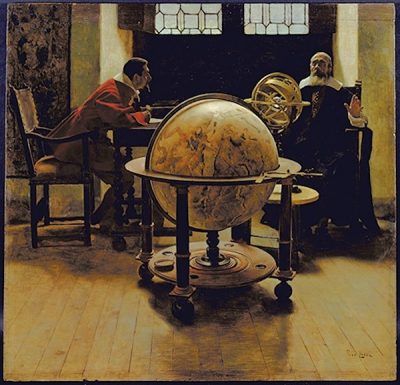History 2911 History of Science
Fall and Winter Terms 2019-20 (1.0 credit)
Professor W. R. Laird (wrlaird@carleton.ca)
Field a, b, or e
Lectures three hours a week
The history of science from Antiquity to the atomic age.
This course provides an introduction to the history of science through classic works that contributed to the scientific understanding of their times.
Readings consist of works by Plato, Aristotle, Galileo, Newton, Darwin, and Einstein.
Lectures will guide students to a knowledge and an understanding of the readings assigned for each day. Students must attend all lectures, having read beforehand the reading assigned for that day. Knowledge and understanding of the readings and lectures will be assessed at every lecture in in-class, written responses, worth a total of 40% of the final grade.
Attendance is mandatory; students who attend fewer than 40 lectures will receive F on the course.
The required texts, which will be available at All Books (327 Rideau Street, next to the Bytown Cinema, tel. 613 789-9544), are the following:
- Darwin, Charles. On the Origin of Species. London 1859; repr. in facsimile. Cambridge, Mass.: Harvard University Press, 1964 (or any other printing of the first edition–but not the sixth).
- Einstein, Albert. Relativity: The Special and General Theory. Trans. Nigel Calder. Harmondsworth: Penguin, 2006.
- Galilei, Galileo. Dialogue Concerning the Two Chief World Systems. Trans. Stillman Drake. 2nd ed. Berkeley: University of California Press, 1967.
- Plato. Timaeus. In Timaeus and Critias, trans. Desmond Lee. Harmondsworth, Penguin, 1965; repr. 1977; or the translation by Donald J. Zeyl in Plato, Complete Works, ed. John M. Cooper (Indianapolis/Cambridge: Hackett, 1997). Avoid Jowett’s translation.
In addition to these, required readings from Aristotle and Newton will be available on ARES
Grades will be based on in-class written responses (40%) and four written assignments (60%). There are no examinations. Correct English and proper form and style are required in all written work.
This is a classroom course. No lecture notes will be available electronically. No electronic devices (laptops, iPads, iPhones, and the like) are permitted to be used in the classroom. Notes may be taken only with pen and paper.
